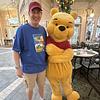Take a photo of a barcode or cover
Backstory: It's quarantine time. I'm sitting at home furiously writing a review about a book that I was really looking forward to but ended up truly despising. I did what every reader is not supposed to do and watched the movie before I read the book. The consequence? I hated the book.
First of all, I had some major issues with the novel.
1. The BLATANT sexism:
Sagan writes that Ellie Arroway was "distressed" when she didn't get more than a goodnight kiss from a fellow scientist, whose "sexual escapades were legendary among his colleagues." This is just a classic example of the problems that arise when a man writes from a woman's perspective. I really don't think that Sagan understands that females are not "DISTRESSED" when they're not sexually involved with every man that breathes in their direction.
2. The cultural stereotyping:
In the novel, there is a very intelligent, well-educated, classy scientist from India who plays a big role in the discovery of the Message and building of the Machine. However, no matter how smart she was, no matter how many discoveries she made, Sagan felt the need to CONSTANTLY remind us about her ethnicity. He even went so far as to mention that Ellie Arroway got a waft of curry when Devi walked by. Seriously? Just because she's from India does not mean that she has to smell like curry: it's a blatant stereotype that added nothing to the novel.
3. The endless discussions about religion and God and faith
I wanted to read this novel because I'm a big fan of sci-fi and space (and the movie was excellent). What I ended up reading was page after page after page of monotonous discussions about faith and its place in the Message. Sagan's writing was so wishy-washy that eventually religion and the Message seemed to blend into one another. On some pages, it appeared that he was condoning religion, while in other parts he seemed to be condoning science. At some point, I'm pretty sure that he used the Bible as a comparison to the Message--what?! I came here for some cold hard science, and what I got was this jumble of spirituality and physics.
4. Sagan's general floundering around
This novel could have been really well done if Sagan had kept to one main idea about the Message and its place in society. Instead of doing this, he constantly added different themes ranging from religion to race to gender to wealth. It ended up being this horrible hodgepodge of deep thoughts and drawn out explanations. As a reader, I was confused and bored for most of the novel. Sagan failed to communicate anything of the smallest significance to me, and it was disappointing because I was so looking forward to reading this book.
5. The characters were flatter than Flat Stanley and had less depth than the kiddie pool
Sagan wrote his characters for the book, instead of writing the book for the characters. What can I say? I don't blame the man; he's clearly not a fiction writer, and at least he tried. But after about 100 pages of "Ken der Heer said something incorrect, let me explain why he's wrong for six pages and then bring it up way later in the book and expect you to remember," I got frustrated. Very frustrated. The characters would say something obtuse, which Sagan would then use as a segway into six pages about some inane and obscure topic. Yes, I understand he's not a fiction writer. Yes, I understand that some of his non-fiction stuff was good. But seriously Carl, be better .
In conclusion:
Contact is an attractive novel with a promising back cover blurb, but it sorely lacks focus and conciseness. The blatant sexism and cultural stereotyping made me nauseous, and the characters had less depth than a kiddie pool.
First of all, I had some major issues with the novel.
1. The BLATANT sexism:
Sagan writes that Ellie Arroway was "distressed" when she didn't get more than a goodnight kiss from a fellow scientist, whose "sexual escapades were legendary among his colleagues." This is just a classic example of the problems that arise when a man writes from a woman's perspective. I really don't think that Sagan understands that females are not "DISTRESSED" when they're not sexually involved with every man that breathes in their direction.
2. The cultural stereotyping:
In the novel, there is a very intelligent, well-educated, classy scientist from India who plays a big role in the discovery of the Message and building of the Machine. However, no matter how smart she was, no matter how many discoveries she made, Sagan felt the need to CONSTANTLY remind us about her ethnicity. He even went so far as to mention that Ellie Arroway got a waft of curry when Devi walked by. Seriously? Just because she's from India does not mean that she has to smell like curry: it's a blatant stereotype that added nothing to the novel.
3. The endless discussions about religion and God and faith
I wanted to read this novel because I'm a big fan of sci-fi and space (and the movie was excellent). What I ended up reading was page after page after page of monotonous discussions about faith and its place in the Message. Sagan's writing was so wishy-washy that eventually religion and the Message seemed to blend into one another. On some pages, it appeared that he was condoning religion, while in other parts he seemed to be condoning science. At some point, I'm pretty sure that he used the Bible as a comparison to the Message--what?! I came here for some cold hard science, and what I got was this jumble of spirituality and physics.
4. Sagan's general floundering around
This novel could have been really well done if Sagan had kept to one main idea about the Message and its place in society. Instead of doing this, he constantly added different themes ranging from religion to race to gender to wealth. It ended up being this horrible hodgepodge of deep thoughts and drawn out explanations. As a reader, I was confused and bored for most of the novel. Sagan failed to communicate anything of the smallest significance to me, and it was disappointing because I was so looking forward to reading this book.
5. The characters were flatter than Flat Stanley and had less depth than the kiddie pool
Sagan wrote his characters for the book, instead of writing the book for the characters. What can I say? I don't blame the man; he's clearly not a fiction writer, and at least he tried. But after about 100 pages of "Ken der Heer said something incorrect, let me explain why he's wrong for six pages and then bring it up way later in the book and expect you to remember," I got frustrated. Very frustrated. The characters would say something obtuse, which Sagan would then use as a segway into six pages about some inane and obscure topic. Yes, I understand he's not a fiction writer. Yes, I understand that some of his non-fiction stuff was good. But seriously Carl, be better .
In conclusion:
Contact is an attractive novel with a promising back cover blurb, but it sorely lacks focus and conciseness. The blatant sexism and cultural stereotyping made me nauseous, and the characters had less depth than a kiddie pool.
Contact reminds me of Star Trek: The Motion Picture in that the concept of both stories is epic, but they are both just too boring and drawn out in the delivery.
I definitely liked the movie better than the book on this one. I possibly could stretch to 3 stars but 2 star rating I think is fair enough and it is my current feeling about it.
I definitely liked the movie better than the book on this one. I possibly could stretch to 3 stars but 2 star rating I think is fair enough and it is my current feeling about it.
This was good, I just struggled with it. The writing often put me to sleep up until the last chunk. It was so much build up that didn’t seem to have a huge impact at the end.
challenging
inspiring
mysterious
sad
medium-paced
Plot or Character Driven:
A mix
Strong character development:
Yes
Loveable characters:
Complicated
Diverse cast of characters:
Yes
Flaws of characters a main focus:
Yes
5.0⭐ Faith, Odds, Numbers, Proof
A book more told than shown. Literary rules broken left and right.
It’s perfect. Carl wrote with an authenticity and human compassion that breaks my heart, moves me to tears.
I’ve long been a fan of the movie, but it was so special to read the book. To know that Carl brought the world along with Ellie, instead of centering a story about cosmic break-through on just one American.
I don’t have a sense of the world before I got here, but the biggest fiction in this novel is the human cooperation. Oh sure, there was pulling and tugging and agenda, but it was fucking constructive. To have lived in the 80’s must’ve been like sitting at the peak of human evolution. And like, it was still garbage. Can we do no better that that? Than this?
We’d never get as far as the world governments and scientists did in Contact. I think if Carl’s cosmological beings were really watching at a distance, they’d do just what they said they would. Leave us to our devices.
I crave to be the kind of human that inspires the hope that we’re more than a brief pest on the planet earth.
I don’t believe we’re capable of it, but I will keep trying to be my best self. I think the only way is if enough of us face the truth of Nihilism dead on, smile, and do better anyway.
Books like Contact, steel us on that path.
We're a better world because of this novel, and all its implications.
-
A book more told than shown. Literary rules broken left and right.
It’s perfect. Carl wrote with an authenticity and human compassion that breaks my heart, moves me to tears.
I’ve long been a fan of the movie, but it was so special to read the book. To know that Carl brought the world along with Ellie, instead of centering a story about cosmic break-through on just one American.
I don’t have a sense of the world before I got here, but the biggest fiction in this novel is the human cooperation. Oh sure, there was pulling and tugging and agenda, but it was fucking constructive. To have lived in the 80’s must’ve been like sitting at the peak of human evolution. And like, it was still garbage. Can we do no better that that? Than this?
We’d never get as far as the world governments and scientists did in Contact. I think if Carl’s cosmological beings were really watching at a distance, they’d do just what they said they would. Leave us to our devices.
I crave to be the kind of human that inspires the hope that we’re more than a brief pest on the planet earth.
I don’t believe we’re capable of it, but I will keep trying to be my best self. I think the only way is if enough of us face the truth of Nihilism dead on, smile, and do better anyway.
Books like Contact, steel us on that path.
We're a better world because of this novel, and all its implications.
-
inspiring
mysterious
reflective
medium-paced
Plot or Character Driven:
A mix
Strong character development:
Yes
Loveable characters:
Yes
Diverse cast of characters:
Yes
Flaws of characters a main focus:
Yes
reflective
slow-paced
adventurous
mysterious
reflective
slow-paced
Plot or Character Driven:
A mix
Strong character development:
Yes
Loveable characters:
Complicated
Diverse cast of characters:
Yes
Flaws of characters a main focus:
Complicated
Interesting book with a unique perspective on sci-fi. Well thought out and intelligently written.
Maybe a decade or so ago, I woke up around 1 or 2 am and realized my husband was awake already. He was having trouble sleeping, stressed about something or another, so I asked if he wanted to turn on the TV. After flipping through channels, he found Contact playing on one of them. Normally, I would go back to sleep and hope for the best for him, but this night I stayed up with him and we finished the movie.
It wasn't the first time either of us had seen it, we both love a good space movie and Contact might be the best of them. But, since that night, over the years it's turned into our easiest recourse for stressful nights or days. When things get too hard and there isn't really anything to be done, one of us asks the other, "wanna watch Contact?"
So I've been traveling a lot for work the last several weeks, and the last several weeks have also been a wildly stressful time politically in America, so it was really nice when, this time, because we are spending a lot of time apart, my husband asked, "wanna read Contact?"
The book is really, really good. There are some ideas and quotes from it that I think will be lasting for me. It's a rare thing when both the book and movie are excellent, and I think enjoying either before the other wouldn't ruin the experience of them both.
There is some very hard science, so I think making a note to self that you don't have to understand it all and let the science wash over you in favor of sticking with the plot is a worthwhile approach. There are a lot of characters, and frustratingly they are often alternately referred to by first or last name, so I kind of wish I had kept a guide to the characters handy.
The exploration and thought given to the way messages from an alien intelligence would play out geopolitically, in religion, in finance, and in daily life is astounding and feels spot on. Even more impactful are the challenges and meaning derived from interpersonal relationships. It's wild this was written 40 years ago and still feels like it could have been written today.
All told, it's an incredible story about wonder, belief, love, faith, proof, evidence, and humanity. Recommend to fans of the movie, space-based sci fi, and speculative fiction.
It wasn't the first time either of us had seen it, we both love a good space movie and Contact might be the best of them. But, since that night, over the years it's turned into our easiest recourse for stressful nights or days. When things get too hard and there isn't really anything to be done, one of us asks the other, "wanna watch Contact?"
So I've been traveling a lot for work the last several weeks, and the last several weeks have also been a wildly stressful time politically in America, so it was really nice when, this time, because we are spending a lot of time apart, my husband asked, "wanna read Contact?"
The book is really, really good. There are some ideas and quotes from it that I think will be lasting for me. It's a rare thing when both the book and movie are excellent, and I think enjoying either before the other wouldn't ruin the experience of them both.
There is some very hard science, so I think making a note to self that you don't have to understand it all and let the science wash over you in favor of sticking with the plot is a worthwhile approach. There are a lot of characters, and frustratingly they are often alternately referred to by first or last name, so I kind of wish I had kept a guide to the characters handy.
The exploration and thought given to the way messages from an alien intelligence would play out geopolitically, in religion, in finance, and in daily life is astounding and feels spot on. Even more impactful are the challenges and meaning derived from interpersonal relationships. It's wild this was written 40 years ago and still feels like it could have been written today.
All told, it's an incredible story about wonder, belief, love, faith, proof, evidence, and humanity. Recommend to fans of the movie, space-based sci fi, and speculative fiction.
adventurous
hopeful
mysterious
reflective






